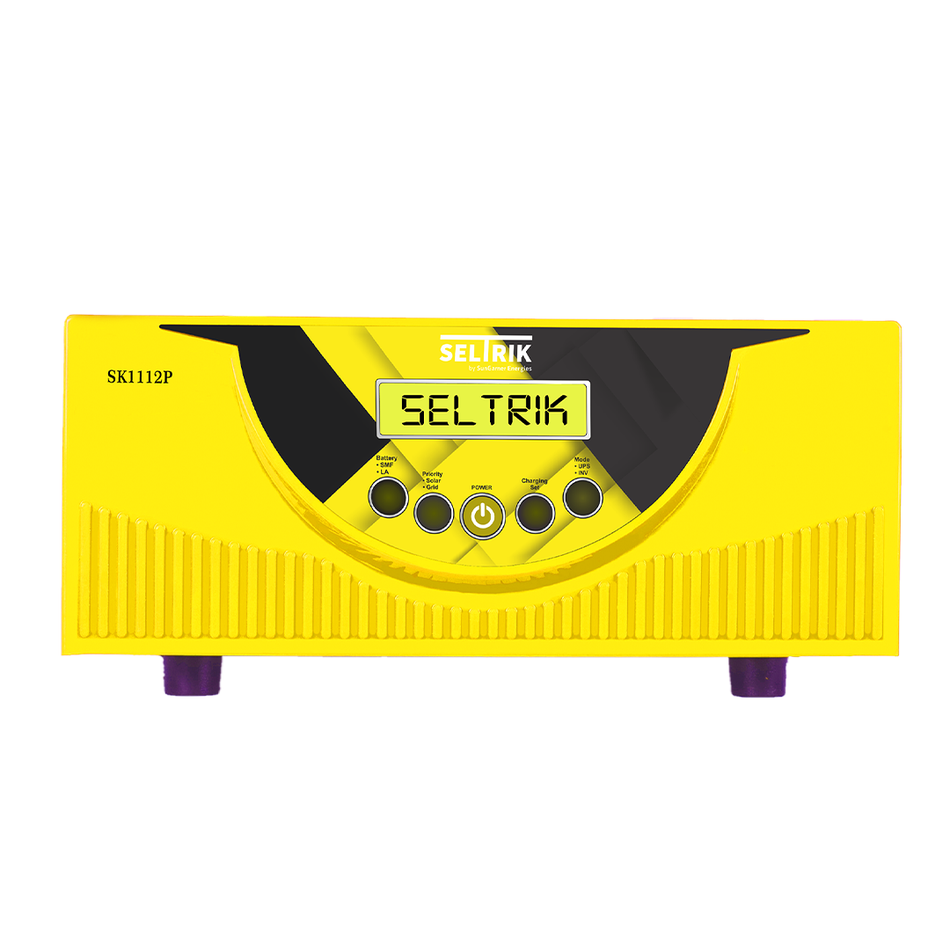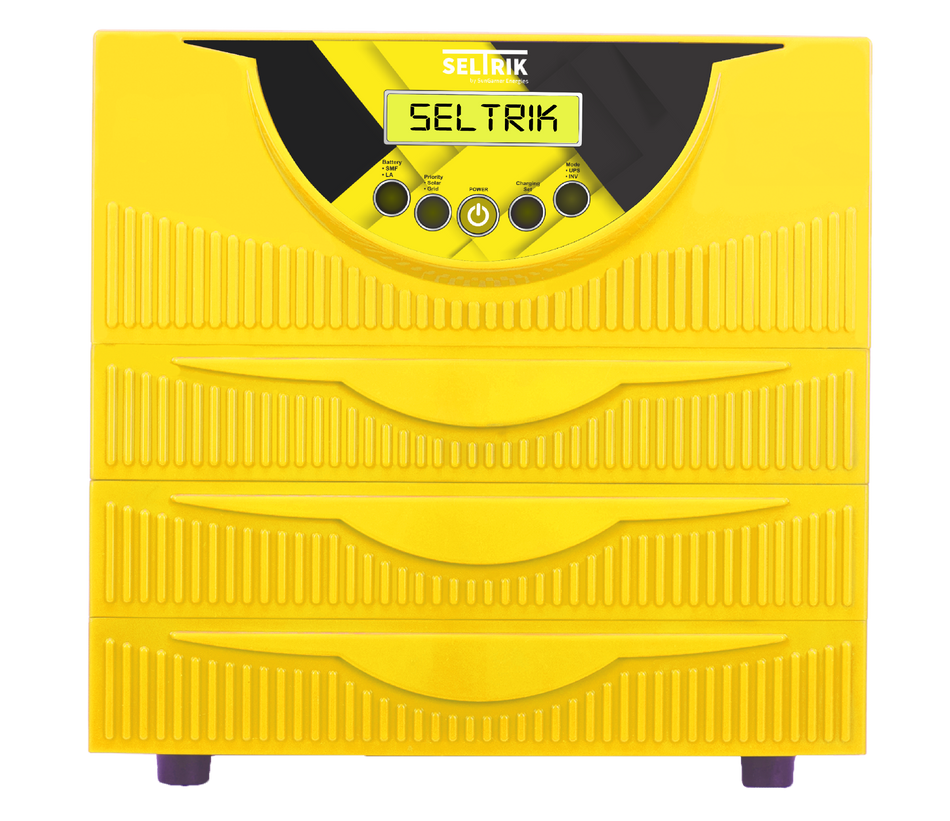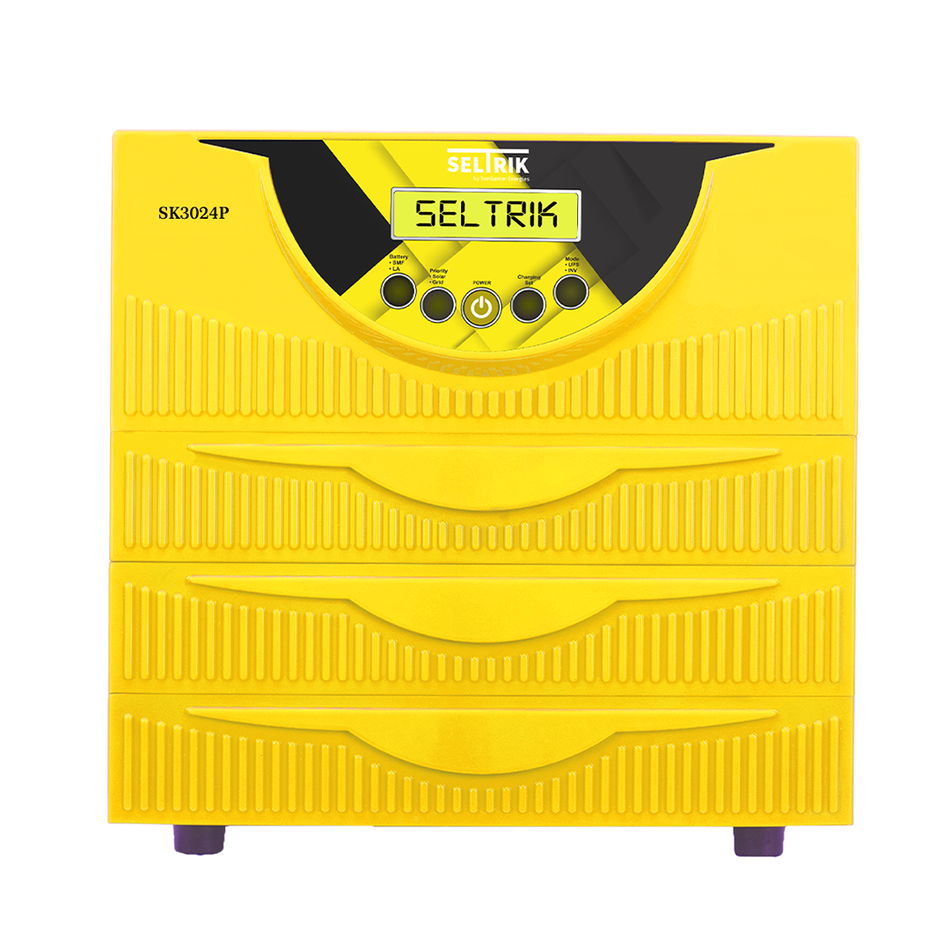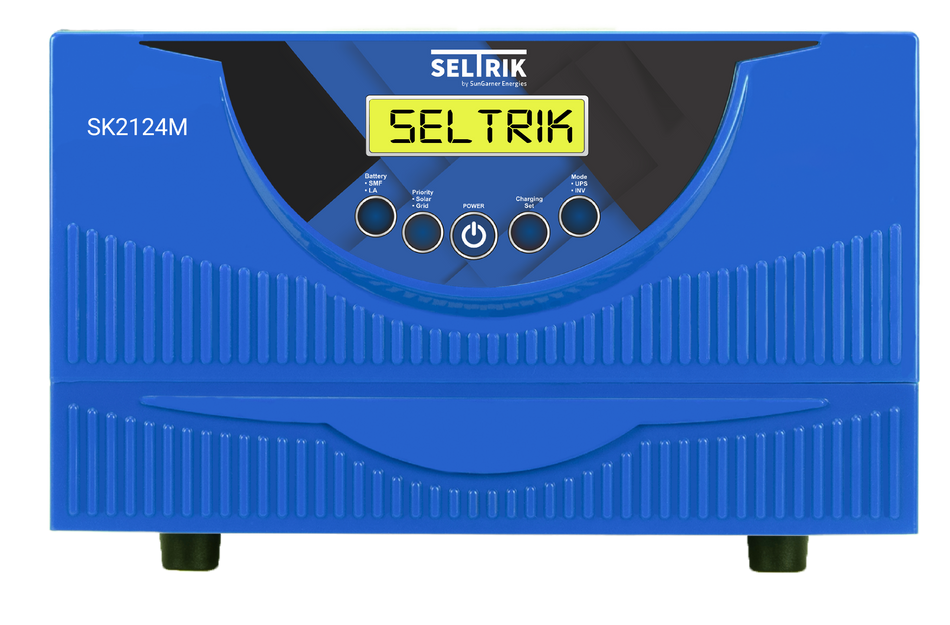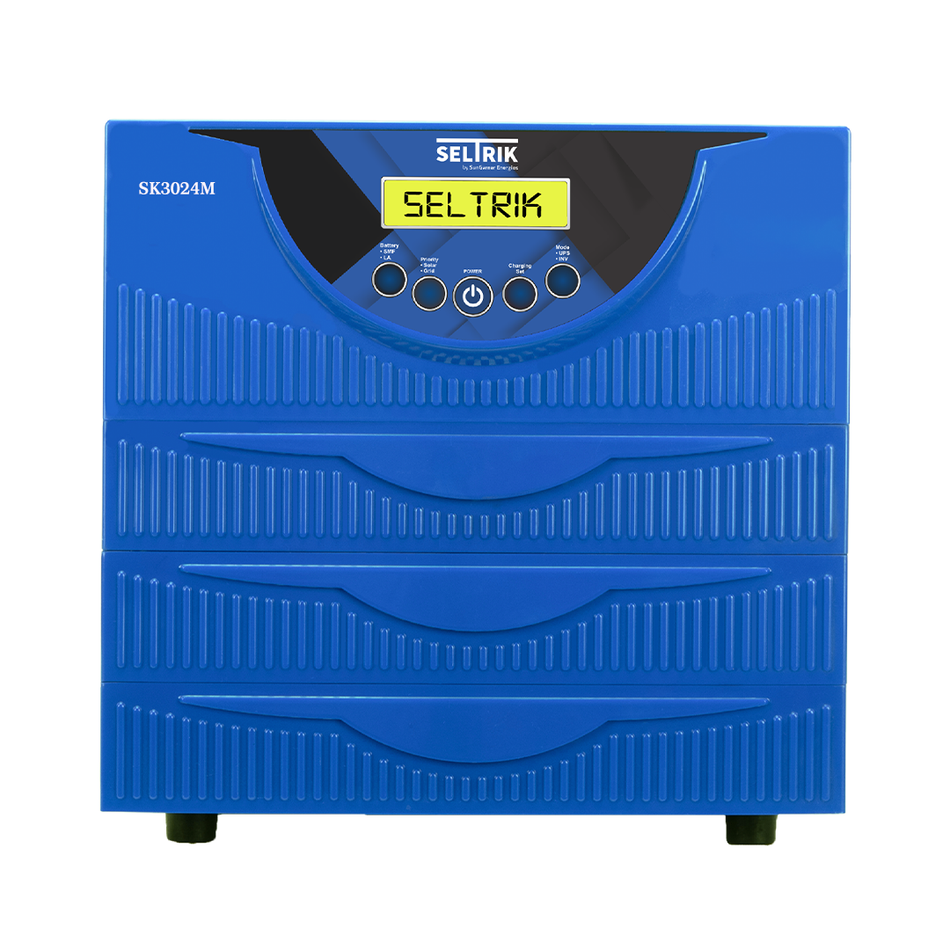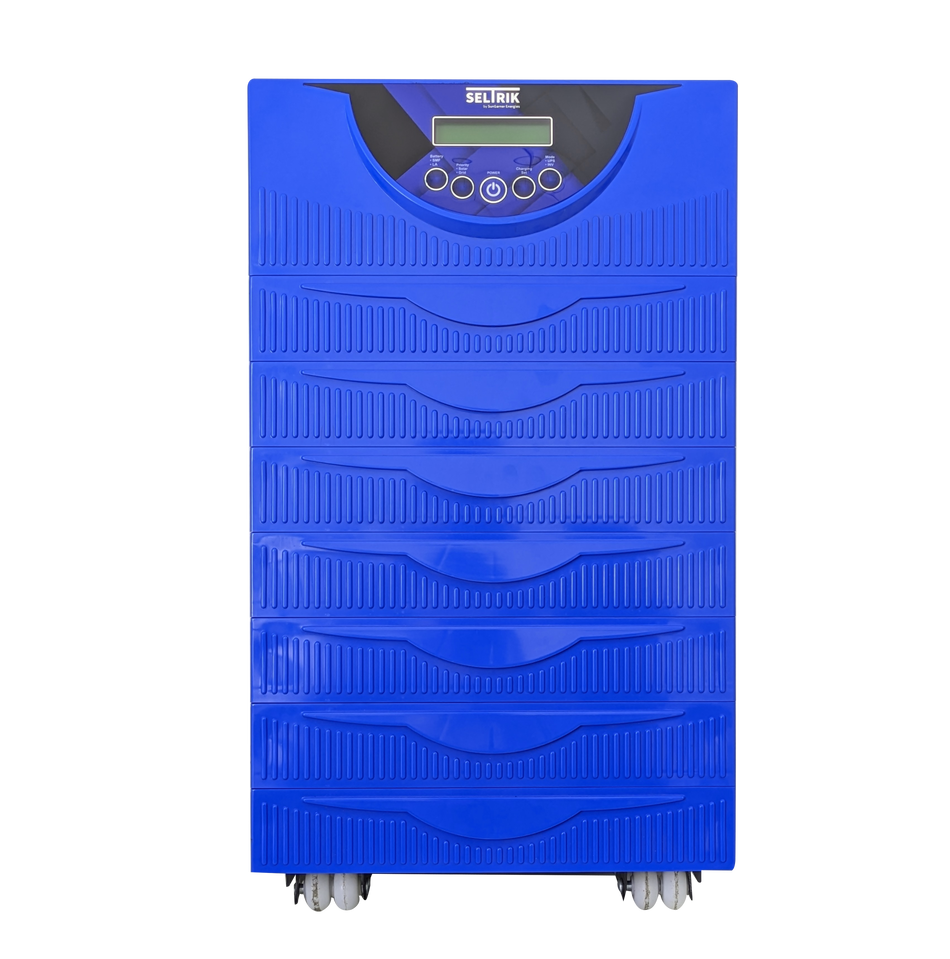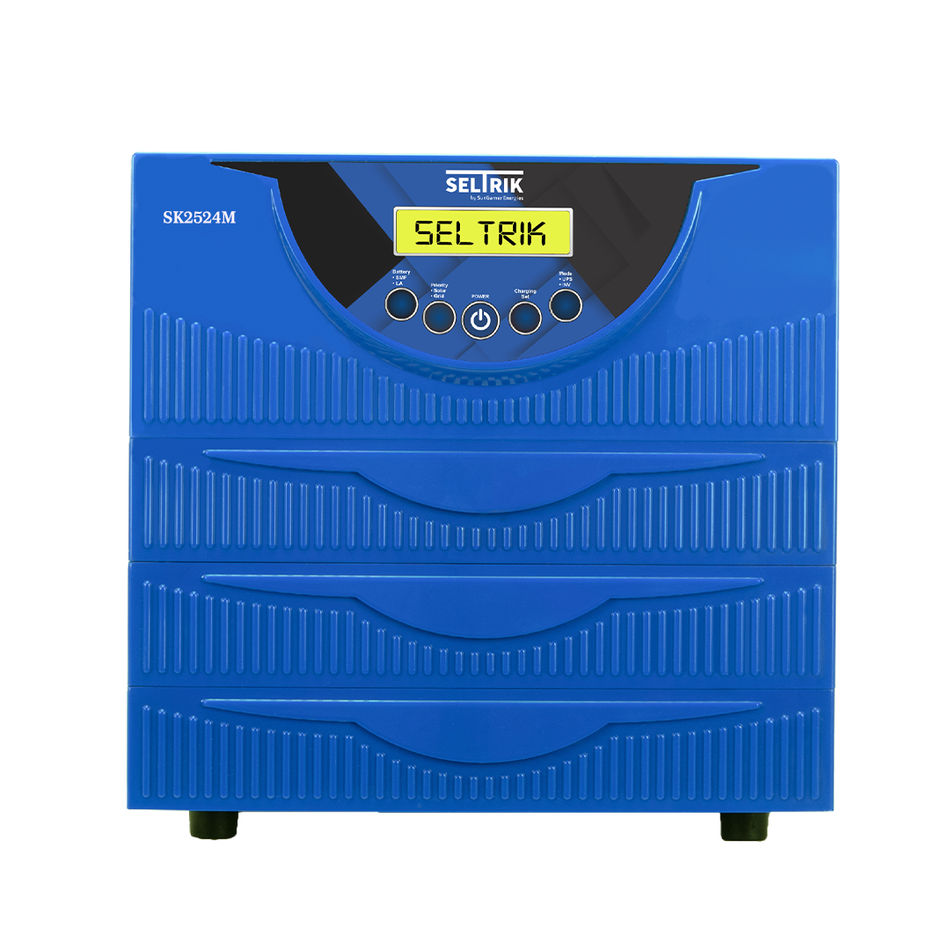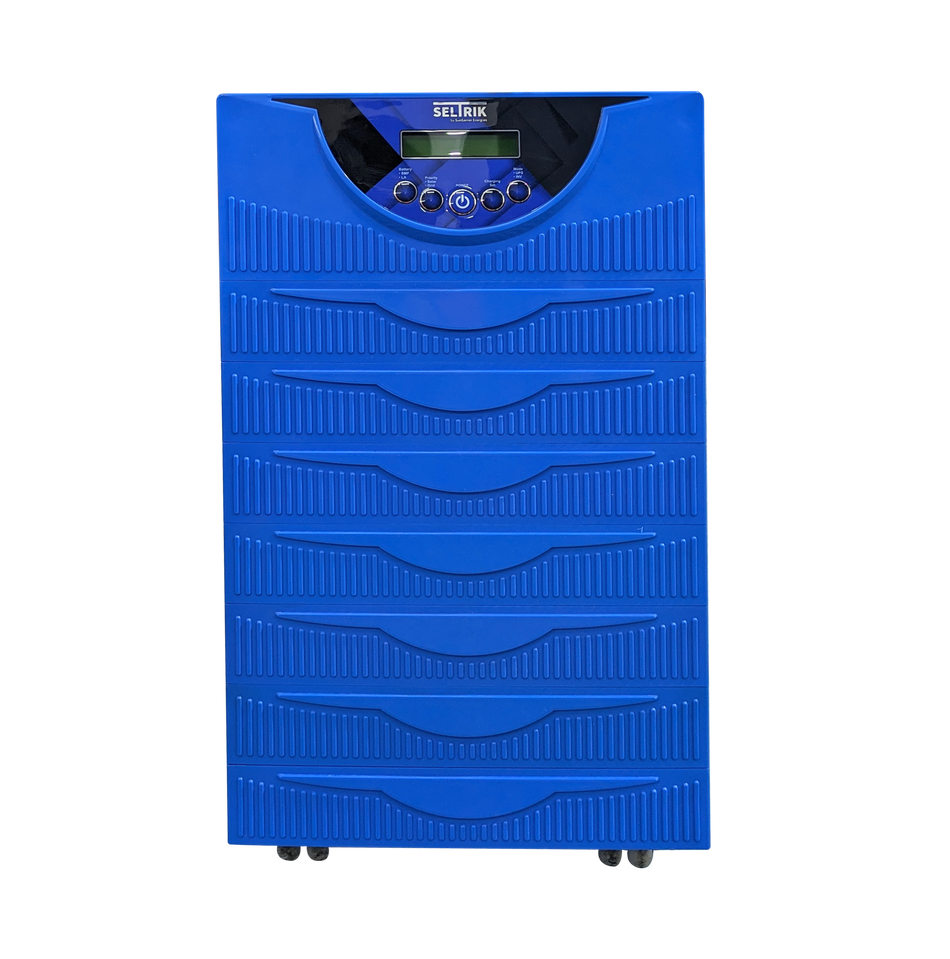8 Products
Collection: SOLAR MPPT or PWM INVERTER
 A Solar Inverter serves as a vital component in a solar power system, responsible for transforming the direct current (DC) generated by solar panels into the alternating current (AC) required to power household and commercial appliances. Widely regarded as the central processing unit of a solar setup, it plays a pivotal role in converting solar energy into a more practical form. Over time, solar inverters have advanced beyond their initial function of simply converting DC to AC. Today, these devices have become highly intelligent units, incorporating features such as data monitoring, sophisticated utility controls, and other enhanced functionalities.
A Solar Inverter serves as a vital component in a solar power system, responsible for transforming the direct current (DC) generated by solar panels into the alternating current (AC) required to power household and commercial appliances. Widely regarded as the central processing unit of a solar setup, it plays a pivotal role in converting solar energy into a more practical form. Over time, solar inverters have advanced beyond their initial function of simply converting DC to AC. Today, these devices have become highly intelligent units, incorporating features such as data monitoring, sophisticated utility controls, and other enhanced functionalities.

An inverter is an electronic device that converts direct current (DC) electricity into alternating current (AC). It is commonly used in various applications, such as solar power systems, uninterruptible power supplies (UPS), electric vehicles, and home appliances
Inverters can be categorized into three main types:
i) Off-grid/Standalone inverters – operate independently without relying on the grid and necessitate battery storage.
ii) On-grid/Grid-tied inverters – depend on the grid for operation.
iii) Hybrid inverters – integrate both battery storage and grid connection, often equipped with an inbuilt solar charge controller.
Within the realm of grid-tied solar inverters, there are subcategories, including micro, string, and central inverters.
Why solar inverters are required?
Electricity has become an indispensable aspect of our daily lives, predominantly sourced through Grid Electric Power supplied by governmental or private agencies, especially in multi-story buildings. In India, the prevalence of frequent power interruptions has led to the widespread use of Diesel Generator sets and Inverters as backup power solutions in both residential and industrial settings, preventing shutdowns during outages. Today, solar power emerges as a leading choice for primary or backup power in homes and small-scale industries. It stands out as an excellent solution, particularly in rural areas where electrical power supply is often inconsistent.
When considering the purchase of a high-capacity inverter for larger homes with an average power consumption of 2,000 watts (2KW), it's crucial to take into account the following key factors in your decision-making process.

PWM Solar Inverters,
designed for smaller capacities of less than 2 kW and tailored for use in rural areas, are constructed with pulse width modulation (PWM) technology to enhance affordability.
MPPT Solar Inverter
An MPPT (Maximum Power Point Tracking) inverter is a type of solar inverter designed to optimize the efficiency of solar power systems. Unlike traditional inverters, MPPT inverters incorporate advanced tracking algorithms to maximize the amount of power harvested from solar panels.
Features Of Solar Inverters
MPPT – MPPT Inverter is always a good choice as it charges battery 30% faster compared to PWM technology-built inverter
By Pass Switch- When the Inverter fails, the power supply to the home will be disturbed, Bypass Switch allows homeowners to use electricity even if the inverter is faulty.
LCD display- A LCD Screen helps Homeowners understand Inverter operation such as real-time analysis of power generation, power consumption, battery charging status, and reason for Inverter failure.
MCB Protection: the grid power always has voltage fluctuations, chances for short circuit, MCB Saves Inverter from High Voltage and Short circuit failures.
While there are many great best Off grid solar inverter manufacturers in India, SunGarner stands out as the best. SunGarner has established itself as the industry standard for off-grid solar inverters in India because of its excellent products and dedication to client happiness. So if you're looking to embrace energy independence and bid farewell to power outages, SunGarner is your reliable companion on this solar-powered journey.
 A Solar Inverter serves as a vital component in a solar power system, responsible for transforming the direct current (DC) generated by solar panels into the alternating current (AC) required to power household and commercial appliances. Widely regarded as the central processing unit of a solar setup, it plays a pivotal role in converting solar energy into a more practical form. Over time, solar inverters have advanced beyond their initial function of simply converting DC to AC. Today, these devices have become highly intelligent units, incorporating features such as data monitoring, sophisticated utility controls,...
A Solar Inverter serves as a vital component in a solar power system, responsible for transforming the direct current (DC) generated by solar panels into the alternating current (AC) required to power household and commercial appliances. Widely regarded as the central processing unit of a solar setup, it plays a pivotal role in converting solar energy into a more practical form. Over time, solar inverters have advanced beyond their initial function of simply converting DC to AC. Today, these devices have become highly intelligent units, incorporating features such as data monitoring, sophisticated utility controls,...


